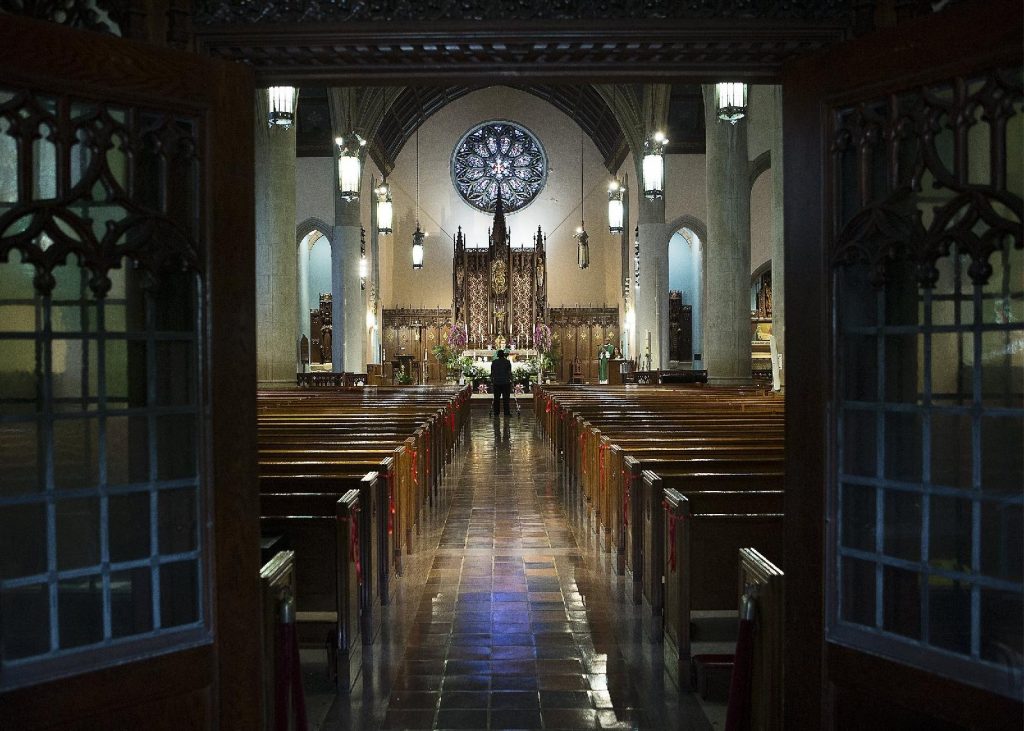The coronavirus pandemic, combined with inflation and a reorganization of the U.S. bishops' communication arm, have altered the budget picture for the U.S. Conference of Catholic Bishops in the 2020s.
"The year-over-year challenges, beginning in the spring of 2020 with the pandemic, continue," wrote Bishop Gregory L. Parkes of St. Petersburg, Florida, USCCB treasurer and chairman of its Committee on Budget and Finance, in an introductory message to his fellow bishops prior to their Nov. 14-17 meeting in Baltimore.
"The relief experienced in 2021 with the emergence of readily available vaccines has been met in 2022 with inflation and the possibility of a recession," Bishop Parkes said. "The financial market's reaction to the uncertainties of the economy continue to adversely impact the rate of return on our long-term investments," he added -- down 23.9% through Sept. 30, and down 23.7% for the pension plan.
Because of inflation's continuing impact, and the performance -- "or, lack of performance," Bishop Parkes told the bishops -- of the stock market, budget figures were revised from those sent earlier in the fall. On Nov. 16, the bishops approved the revised budget 215-4, with one abstention.
One consequence of the budget revision is a higher raise next year for USCCB employees. Instead of a planned 3% pay increase come Jan. 1, it will be 4.5%. Bishop Parkes noted earlier that inflation was running at an 8.2% annual rate at the end of October.
Bishop Christopher J. Coyne asked whether further adjustments can be made for some of the USCCB's lowest-paid workers should inflation continue. He said that in his diocese, "we cashed out some things" and gave a 9% raise to all employees not making six-figure salaries. Bishop Parkes replied he would leave such a move to the Executive Committee.
The revised budget has no deficit or surplus, as the original budget did. "Increased use of carryovers" and other funds from available sources, Bishop Parkes said, were "limited to the amount needed to balance the budget this year."
A new reorganization of the USCCB communications agencies accounts in changes, he added. In this reorganization, 21 jobs are being lost, including 14 at Catholic News Service, which is shuttering its domestic operations at the end of 2022.
"Communications revenues reflect the cessation of certain services for a remaining total of $500,000, which is $3.09 million less than the 2022 approved budget," Bishop Parkes said in written remarks.
Overall, the USCCB's communication budget is $6.7 million less for 2023 than it was for 2022, principally due to the cessation of CNS' Washington and New York offices and a "reduced line of business and related staffing" for the Marketing and Episcopal Resources office, which is being renamed "Licensing & Partnerships."
But the Licensing & Partnerships budget will be slashed 74.2% from 2022 levels to reflect "reduced staffing and operations" as "remaining royalty contracts will be subcontracted to a third party."
The archives budget, which had been a part of communications, is shifting to the Office of the General Secretariat, and the line item for copyright permissions will shift to the Office of General Counsel. Transferring into the communications department is the Office of Public Affairs, which had been part of the general secretariat.
Also, half of the diocesan revenues from the Catholic Communication Campaign will be used to help pay for the communications budget. Nearly half of the $2.85 million from the CCC being spent in 2023 will fund the CNS Rome bureau, which escaped cuts in the USCCB's "sustainable communications" plan. The plan kept the Rome bureau open and offered its news, photos and videos to dioceses at no charge.
The USCCB Office of Creative Services is slated to receive $784,000 in 2023, down from the $1.1 million it received this year. Communications administration will get $507,000 of the CCC grant money, and the renamed Licensing & Partnerships will receive $230,000; it did not receive any 2022 CCC funds.
Bishop Parkes said the committee was not requesting an increase in the diocesan assessment, but the lack of increase, he noted, is "in effect a decrease because of reduced spending power."

